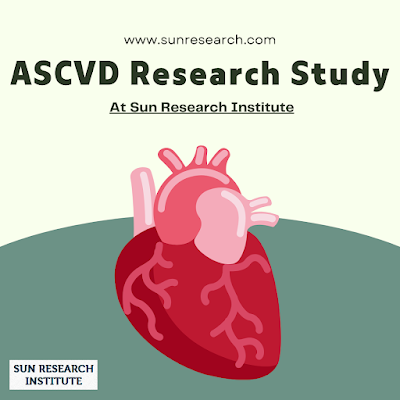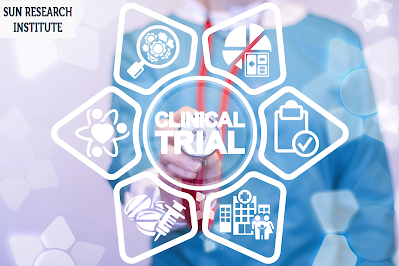Innovative ASCVD Studies at Sun Research Institute
Explore the groundbreaking clinical research studies conducted at Sun Research Institute in San Antonio.
The Importance of ASCVD Research
ASCVD research plays a crucial role in advancing our understanding of cardiovascular diseases and improving patient care. By studying ASCVD, researchers can identify risk factors, develop new treatment options, and refine existing therapies. This research helps healthcare professionals make informed decisions and provide the best possible care to patients.
Through ASCVD research, we can gain insights into the underlying mechanisms of the disease, including its causes and progression. This knowledge is essential for developing preventive measures and targeted interventions to reduce the burden of ASCVD on individuals and society as a whole.
Furthermore, ASCVD research allows us to evaluate the effectiveness and safety of different interventions, such as medications, lifestyle modifications, and surgical procedures. By conducting rigorous clinical trials, researchers can gather evidence to support evidence-based guidelines and recommendations for managing ASCVD.
Overall, ASCVD research is vital for advancing medical knowledge, improving patient outcomes, and ultimately, saving lives. The Sun Research Institute in San Antonio is dedicated to conducting innovative studies in this field to contribute to the collective understanding of ASCVD.
Cutting-Edge Technologies Utilized in ASCVD Studies
ASCVD studies conducted at the Sun Research Institute in San Antonio employ cutting-edge technologies to enhance research capabilities and gather accurate and reliable data. These technologies enable researchers to delve deeper into the complexities of ASCVD and explore new avenues for diagnosis, treatment, and prevention.
One such technology is advanced imaging techniques, such as coronary angiography, computed tomography angiography (CTA), and intravascular ultrasound (IVUS). These imaging modalities provide detailed visualization of the coronary arteries, allowing researchers to identify plaque buildup, arterial stenosis, and other abnormalities associated with ASCVD.
In addition to imaging technologies, molecular and genetic analysis methods are utilized in ASCVD studies. These techniques involve studying the genetic components and molecular pathways involved in ASCVD development and progression. By analyzing genes, proteins, and other biomarkers, researchers can identify potential therapeutic targets and personalized treatment approaches.
Furthermore, digital health technologies, including wearable devices and mobile applications, are integrated into ASCVD studies. These technologies enable the collection of real-time patient data, such as heart rate, blood pressure, and physical activity levels. By monitoring patients remotely, researchers can gather valuable insights into the impact of lifestyle factors on ASCVD and evaluate the effectiveness of interventions in a real-world setting.
The Sun Research Institute remains at the forefront of using cutting-edge technologies to advance ASCVD research and pave the way for innovative approaches to prevention and treatment.
Key Findings from ASCVD Clinical Trials
Numerous key findings have emerged from ASCVD clinical trials conducted at the Sun Research Institute in San Antonio. These findings have contributed to our understanding of ASCVD risk factors, treatment strategies, and outcomes, ultimately shaping clinical practice and improving patient care.
One important finding is the efficacy of statin medications in reducing the risk of cardiovascular events in individuals with ASCVD. Clinical trials have consistently demonstrated the effectiveness of statins in lowering cholesterol levels, stabilizing plaques, and preventing major adverse cardiovascular events, such as heart attacks and strokes.
Another significant finding is the role of lifestyle modifications in managing ASCVD. Clinical trials have shown that adopting a healthy lifestyle, including regular exercise, a balanced diet, smoking cessation, and stress management, can significantly reduce the risk of ASCVD and improve overall cardiovascular health.
Furthermore, ASCVD clinical trials have provided insights into the benefits of novel therapies and interventions. For example, trials evaluating new anticoagulant medications have demonstrated their effectiveness in preventing blood clot formation and reducing the risk of cardiovascular events in high-risk individuals.
These key findings highlight the importance of evidence-based medicine and the continuous pursuit of knowledge through rigorous clinical research. The Sun Research Institute is dedicated to uncovering new insights and translating them into practical solutions for the prevention and treatment of ASCVD.
Impact of ASCVD Research on Patient Care
ASCVD research has had a significant impact on patient care, leading to improved outcomes and better quality of life for individuals with ASCVD. The findings from research studies conducted at the Sun Research Institute in San Antonio have influenced clinical guidelines, treatment protocols, and healthcare practices worldwide.
By identifying risk factors and understanding the underlying mechanisms of ASCVD, research has enabled healthcare professionals to implement targeted interventions and preventive measures. This has resulted in a reduction in the incidence of ASCVD, as well as a decrease in associated complications and mortality rates.
ASCVD research has also contributed to the development of personalized treatment approaches. Through the analysis of biomarkers and genetic factors, researchers can identify individuals who are more susceptible to ASCVD and tailor interventions accordingly. This personalized approach improves treatment outcomes and minimizes adverse effects.
Furthermore, ASCVD research has highlighted the importance of patient education and self-management. By disseminating research findings to patients, healthcare professionals can empower individuals with ASCVD to make informed decisions about their health and adopt lifestyle changes that can positively impact their condition.
The impact of ASCVD research on patient care is ongoing, with continuous efforts to further optimize treatment strategies and enhance the overall management of ASCVD. The Sun Research Institute remains committed to conducting innovative studies that directly translate into improved patient care.
Future Directions in ASCVD Research
ASCVD research is a dynamic field that continues to evolve and expand. The Sun Research Institute is actively involved in shaping the future of ASCVD research by exploring new avenues and addressing emerging challenges.
One future direction in ASCVD research is the investigation of novel biomarkers for risk assessment and early detection. Researchers are exploring the potential of genetic markers, proteomics, metabolomics, and other advanced techniques to identify individuals at high risk of developing ASCVD and intervene at an early stage.
Another area of focus is the development of targeted therapies based on molecular and genetic insights. By understanding the specific molecular pathways involved in ASCVD, researchers can develop therapies that address the underlying causes of the disease, potentially leading to more effective and personalized treatment approaches.
Additionally, ASCVD research is expanding to include the evaluation of digital health technologies and artificial intelligence in disease management. These technologies have the potential to revolutionize the way ASCVD is diagnosed, monitored, and treated, providing more accurate and timely interventions.
Collaboration among researchers, healthcare professionals, and industry partners is crucial for the future of ASCVD research. By working together, we can accelerate the translation of research findings into clinical practice and ultimately improve outcomes for individuals affected by ASCVD.
The Sun Research Institute is committed to staying at the forefront of ASCVD Clinical Research Studies San Antonio and contributing to the advancements that will shape the future of cardiovascular medicine.




Comments
Post a Comment